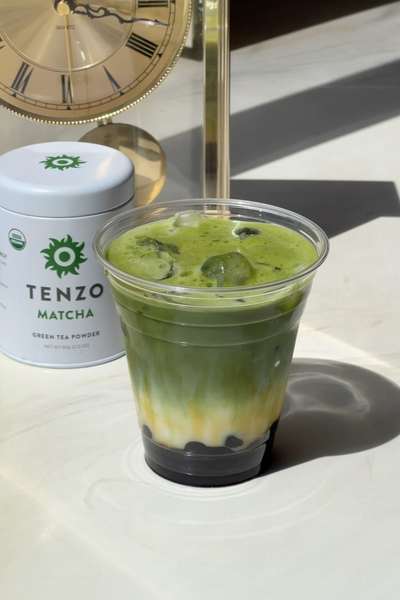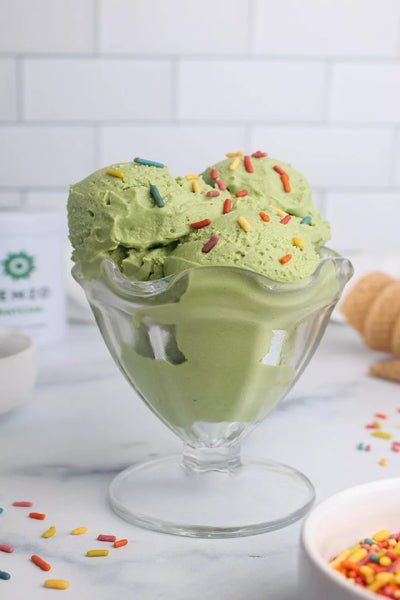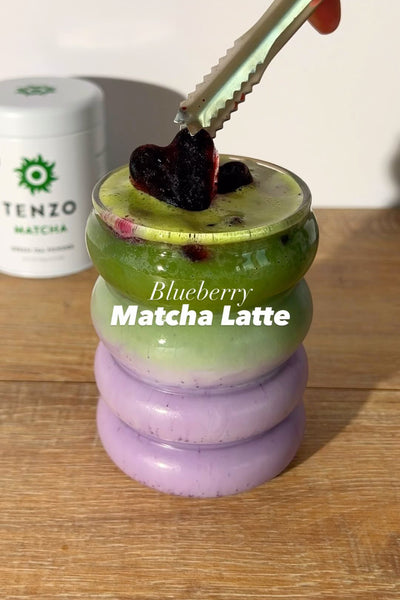A Better Way to Begin the Day

Some thoughts on the calming effect of matcha
Like many other professional athletes and weekend warriors, I used to love getting jacked up on coffee before lifting, training and of course – games with Team USA! One shot, two shots… why not three shots of espresso before the game? “The more caffeine the more energy,” I naively believed, that is until coffee started to bite back.
Most of the time, coffee worked for me. I was amped up, and I had a ton of energy, but there were also a lot of games where that energy mutated into scattered and anxious thoughts during pivotal points where I needed to be present and clear. When my thoughts are scattered, I am more likely to be caught either in the past (replaying how things had gone wrong) or in the future (where the possibility of failure is endless). Wherever I might be, one thing is certain, I am not in the present, the place I need to be, to perform in a high stress, high pressure situations.
When I have had the most success as an athlete, is by being present, in flow, that feeling where I am able to perform smoothly and effortlessly without ambiguous nor malicious thoughts haunting me. I still love caffeine but I knew there was a better way, I just didn’t know of any other option - until I was introduced to matcha.
L-theanine and Brain Waves

4 years ago, I started experimenting with Muse, a multi-sensor meditation device that provides real-time feedback on my brain activity, heart rate, breathing, and body movements. I began using Muse to help me build a consistent meditation practice with the goal of learning how to quit the mind using the real-time feedback I got from using Muse, when I meditated.
Muse is this extremely dorky but cool device that wraps around your forehead and gives you feedback while you meditate in real time by translating your brain signals into the sounds of weather, via the muse app and headphones.
When I first began using Muse, I was very adamant about my meditation practice, making time and space to meditate 3 times throughout the day:
First thing in the morning with Muse.
In the afternoon, with Muse.
Last thing before bed, without Muse.
When using Muse, the app provided feedback in the form of sounds that line up with the raw EEG signal that the band reads while I meditated. Those signals are then grouped into larger bands of frequencies, these bands are what Muse refers to as power bands (alpha, beta, etc).
The morning Muse feedback from the app was quite average. I received a lot of crashing waves mixed in with some thunderstorms, which meant I was either in a lo-beta stage or a high alpha, with an average of a couple birds chirping.
The birds chirping represented a relaxed state for an extended period of time. But unfortunately, this proved a very hard task as I only achieved 2-4 birds in the morning.
Here is where it got fun. My afternoon sessions with Muse were incredibly different than my morning meditation; the audio feedback was filled with at least ten birds, if not hundreds. What was going on inside my head? How and why were these meditation sessions so different? I was so curious. I wanted to know what the difference was.
My Secret Weapon to Stillness, L-theanine.

When I am overseas with my professional team, there aren’t many distractions. Therefore, my days follow the same routine. One consistent part of my daily routine is making and consuming a matcha an hour or so after my lunch. After my matcha, I would sit down for a quick meditation with the Muse app.
It took me a while to make the connection but I finally realized that the difference in my afternoon results came from whether I did or didn’t drink a matcha before meditating. I realized this when I didn’t drink my pre-meditation matcha. To my surprise the birds disappeared in droves, only to return the next day as I consumed a matcha before my Muse meditation.
Before using Muse, I had made the switch to matcha but I didn’t know much about it or any of the benefits that came from this ceremonial grade tea, besides caffeine. I knew it was a unique tea from Japan that gave me a punch of caffeine without the anxiousness and scattered brain coffee previously gave me but I didn’t know why.
The afternoon results from Muse pushed me to study and learn more about matcha. I learned that matcha was used by Japanese Zen Buddhists because it helped them concentrate and remain alert during their long hours of mediation.
This is partially due to the caffeine content naturally found in Matcha green tea. However, unlike coffee, the caffeine in matcha is accompanied by various phytonutrients, antioxidants and something called L-theanine. This magical combination of caffeine and l-theanine provides the mental boost commonly associated with caffeine, without the coffee ‘buzz’ that so often led my mind to hyperactivity, anxiety and distraction.
Breaking Down L-Theanine

L-theanine is very fascinating as it is only found in the Bay Bolete edible mushroom and Camellia sinensis plant (tea leaves). The shade growing style used for the Camellia sinensis plant leaves concentrates the L-theanine content of matcha. This gives it up to 5x the amount of L-theanine as regular green tea.
Where the power of L-theanine lies is after being absorbed into our bloodstream. It crosses the blood-brain barrier and enters the central nervous system where it begins targeting and boosting neurotransmitters like Serotonin, Dopamine, GABA, and Norepinephrine.
The L-Theanine in matcha combats those jittery effects I experience drinking coffee by calming down the nervous system, reducing anxiety, and inducing calm. These effects are created because it increases the neurotransmitters that balance our moods and controls serotonin and dopamine, which make us feel good.
With the help of my dorky, but cool, meditation training device, I was able to truly see that not all caffeine is created equal. By switching my coffee for matcha, I was the recipient of this magical combination of caffeine and L-theanine, receiving the benefits that Zen Buddhists have known since the 12th century. A beautiful combination of clean energy, stillness, and clarity, the perfect recipe to help me get into the zone and crush it on and off the court.










